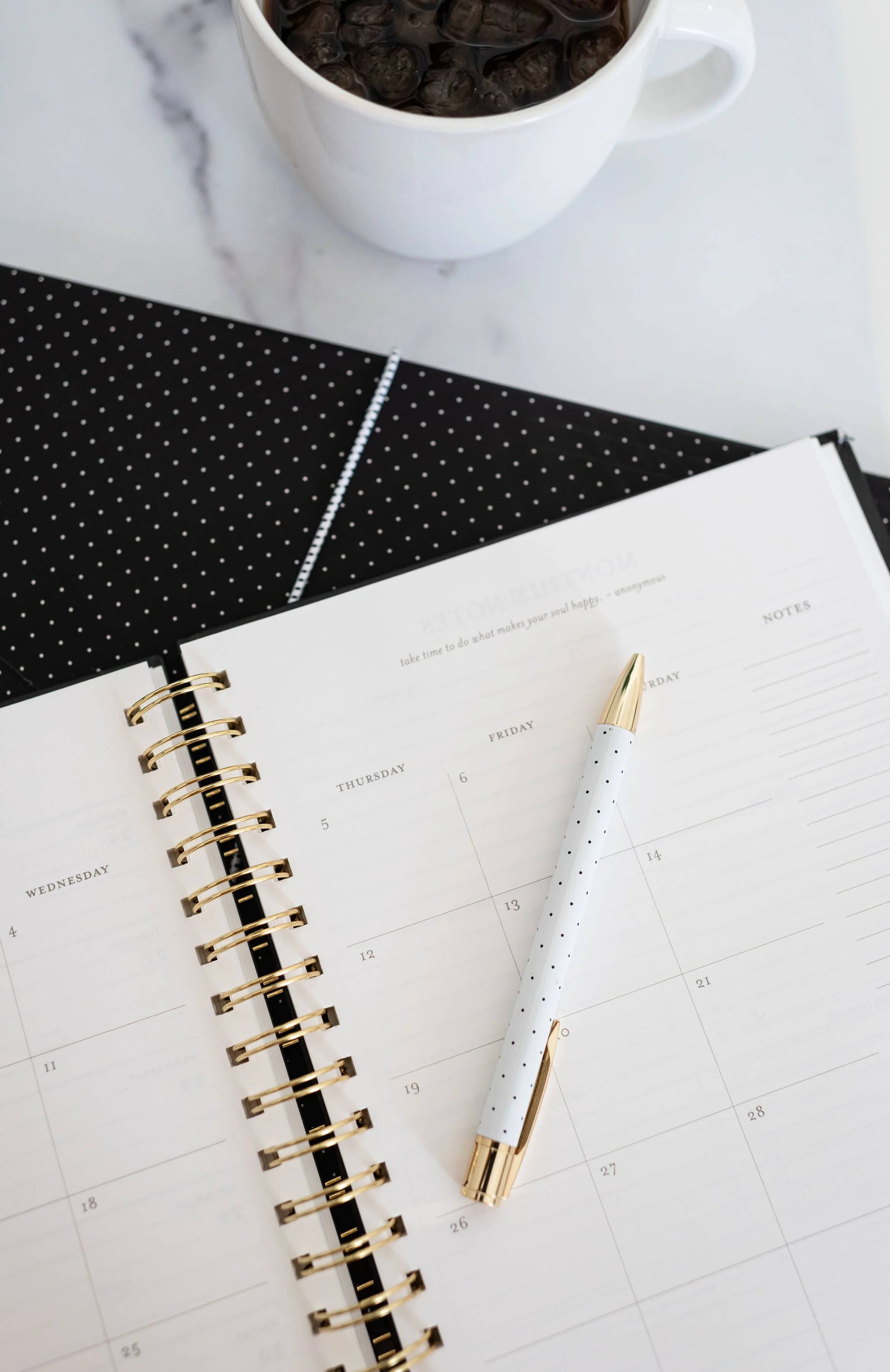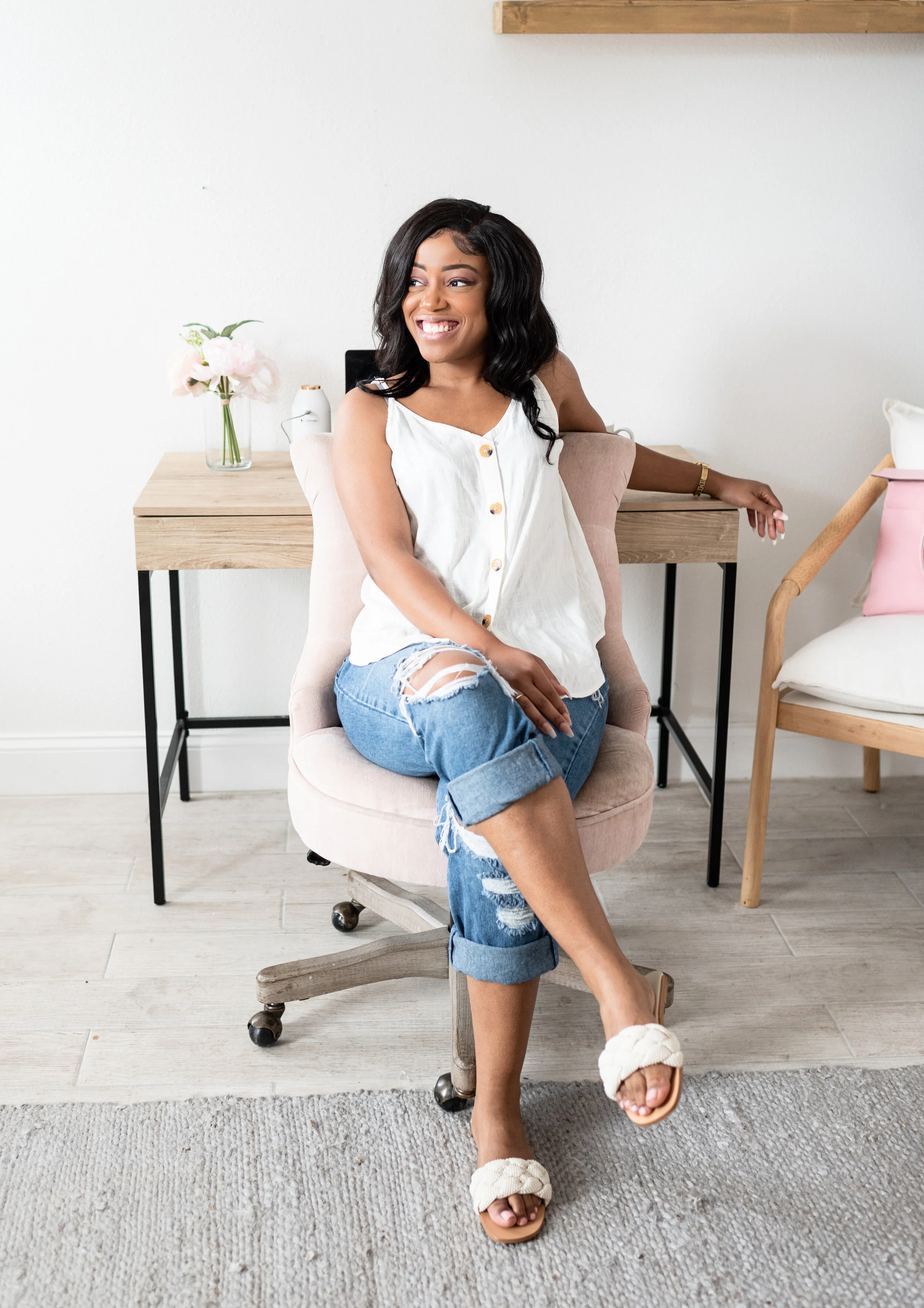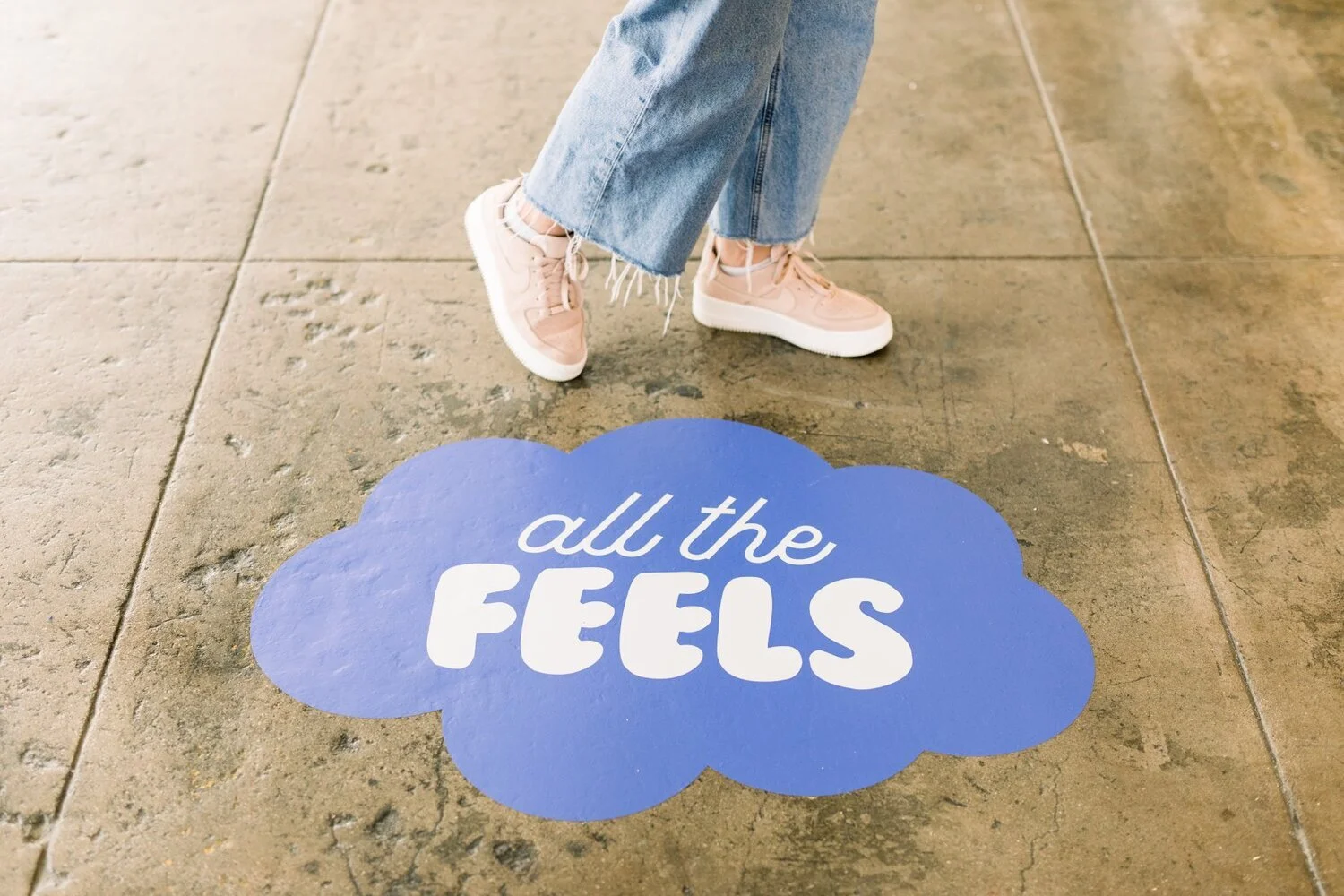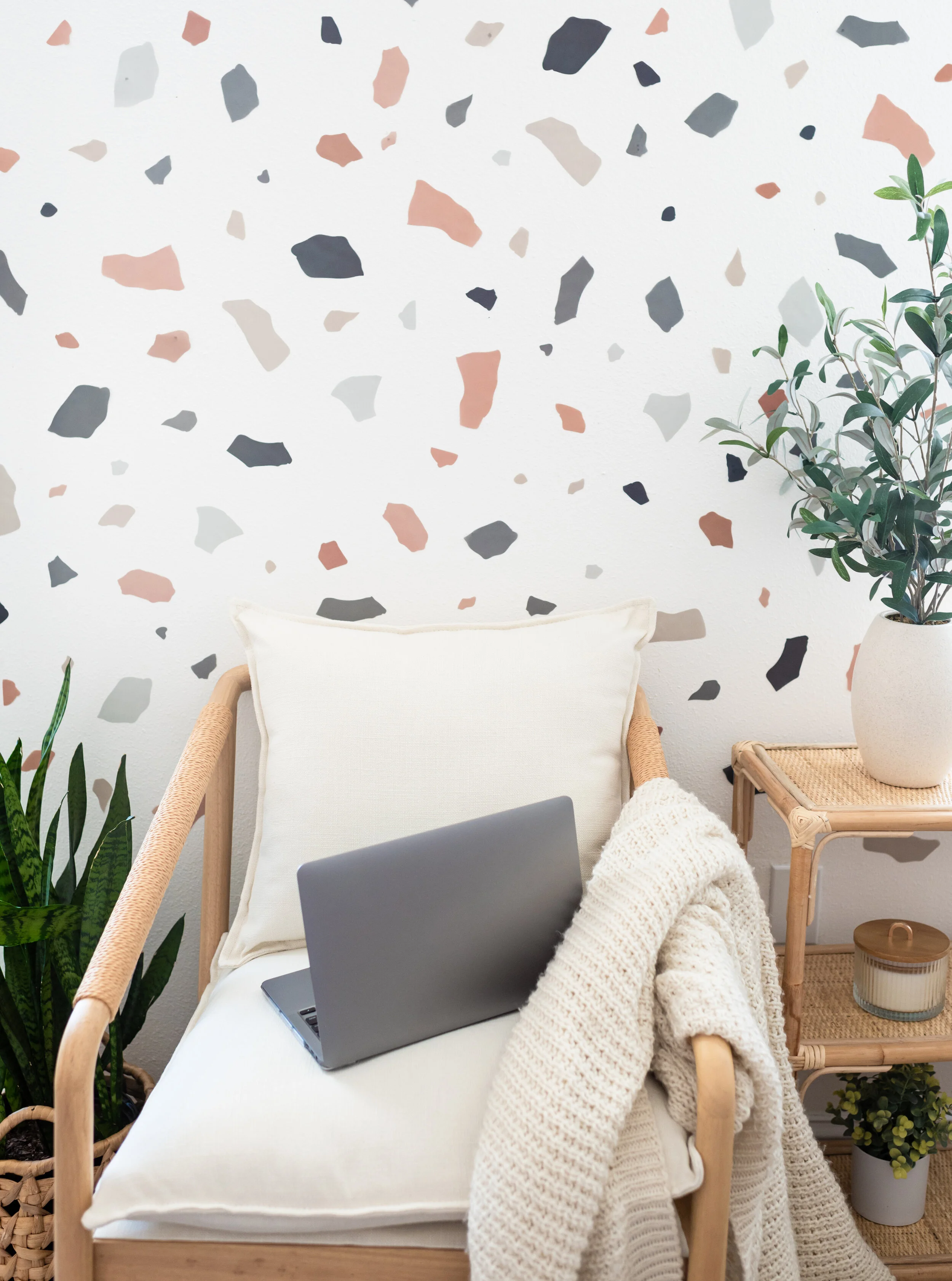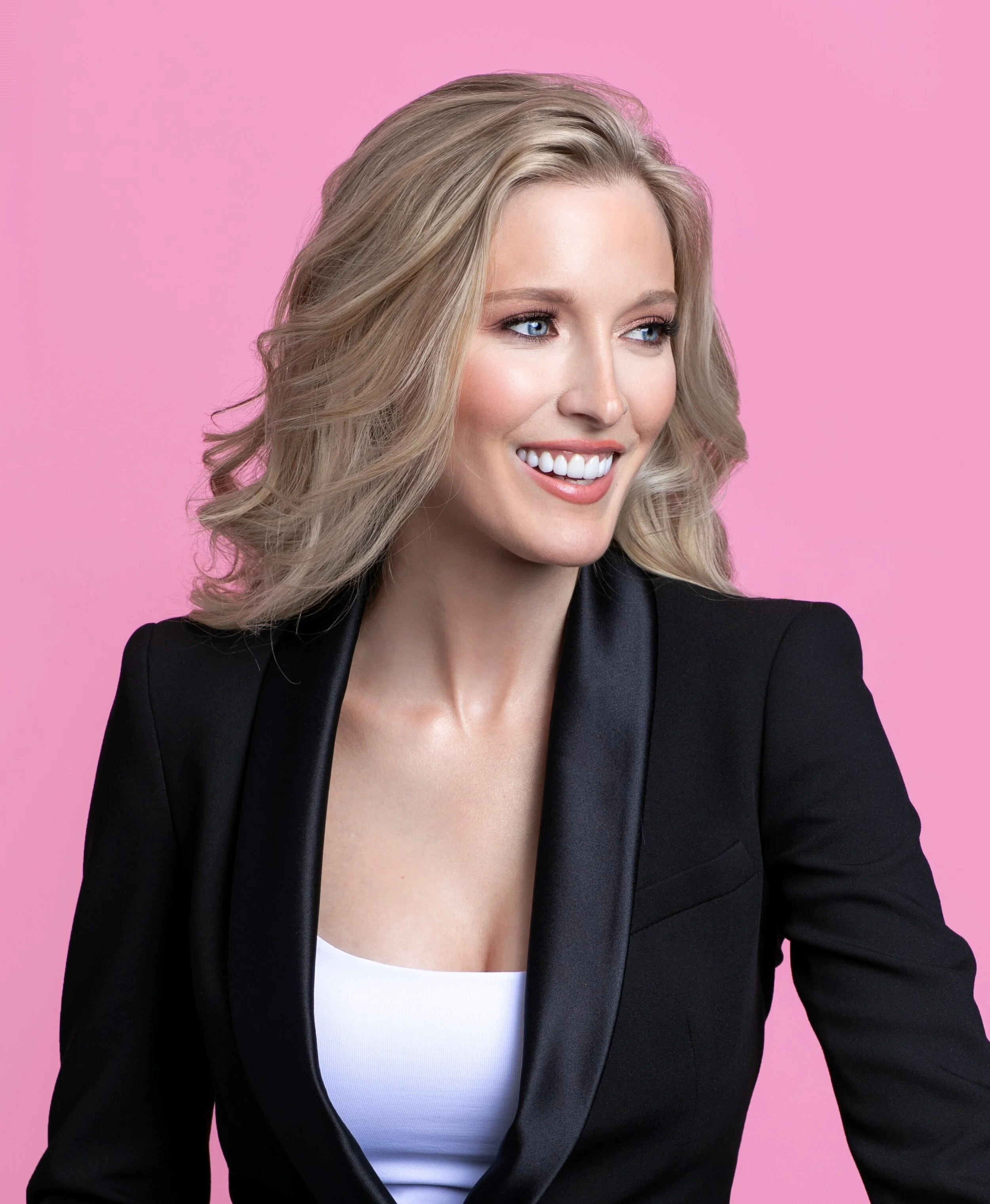It’s easy to think that when you’re doing what you love, you’ll never be burned out, but the opposite is often true. Burnout is a common reality among the most creative and ambitious, and sometimes it can be hard to even notice the burnout symptoms.
If it feels like you're currently teetering on the edge of burnout, that alone is a sign to make a change. Take heart that you’re not alone and there are effective ways to tackle it. Here's 20 professional women who've also found themselves in the midst of burnout—and developed successful strategies to find their way to the other side. Their experiences will give you inspiration and helpful tips to conquer burnout when it inevitably arises.
Mita Carriman
Founder and CEO of Adventurely, a travel club and meetup app connecting digital nomads and their new local communities.
My experience: Managing burnout has become second nature for me ever since I became an entrepreneur. Digital nomadism has been my biggest entrepreneurial hack for managing burnout while equally boosting work productivity. When you're living and working remotely temporarily in a beautiful or interesting new destination, the incentive to maximize your work time to take more advantage of free time to explore and get in a little adventure goes up exponentially.
My advice: If you're able to explore the digital nomad lifestyle, even for just a short stint, I'd highly recommend it. More countries around the world are opening their doors to this type of travel with various visas, and companies such as mine are making it super easy to jumpstart your journey in the lifestyle with advice, support, and community from day one.
Meredith Noble
Co-Founder of Learn Grant Writing, helping those looking for a flexible, meaningful career become paid grant writers with no prior experience.
My experience: I lived through a gas leak explosion in remote Alaska, and it was the ultimate wake-up call that a few weeks “off” would not be enough to reverse the effects of burnout. My No. 1 strategy for regaining my health has been working no more than 24 hours a week. This is possible because of my newfound obsession with maximizing deep and connected work so that my time is spent on a few, right activities.
My advice: I encourage you to read or listen to Deep Work by Cal Newport for tactical advice on how to minimize context switching and distractions. This book inspired my team to take "Deep Work Wednesdays" meaning no meetings, Slack, or email. It works wonderfully!
Annelise Hillmann
Co-Founder and CEO of FRONTMAN, the Gen Z acne care brand for men.
My experience: I struggled most with burnout during the Covid-19 lockdown when I had nothing stopping me from working every waking minute. Two big ways I prevent burnout are small daily practices and passion projects. I make sure to leave time for my self-care practices every day like yoga and relaxation, even when I'm tempted to skip them. I also find ways to make my work exciting by seeking sources of inspiration and fueling my creativity.
My advice: Start small. Make one change that brings you joy in your day. Over time you can continue adding moments of self-care to balance out work stressors.
Nancy Soni
Founder and CEO of PathMatch, an early-career navigation platform that matches Gen Z to modern careers, skills, and employers so they can build "hireability.”
My experience: I've been diagnosed with adrenal fatigue three times over the past 10 years as an entrepreneur and working mom, so I've had to learn how to manage stress and burnout effectively. My No. 1 strategy is to prioritize my health and wellness first. I wake up early to meditate and work out almost every day of the week. Meditation and movement are my surefire ways of keeping stress in check.
My advice: Schedule time off mentally and physically every week. For me, Friday and Saturday nights are when I completely check out of work and focus on my friends, family, and myself. Entrepreneurs tend to feel like they have to "be on" around the clock. Every person has their point of diminishing returns where their brain just doesn't work as effectively. Figure out when you get the best out of yourself and then make time to rest and recharge. This is a marathon, not a sprint.
Ashley K. Stoyanov Ojeda
Business Fairy Godmother at Your Business Hada Madrina, business development and communications strategist for startups.
My experience: Unfortunately I've burned myself out many times since I started my entrepreneurial journey 10 years ago. This was due to inexperience, not wanting to ask for help, and feeling the pressures of hustle culture to work all the time. Tackling burnout requires knowing how to see the signs of burnout and having the strength to pull yourself out of it. When we feel this way, we need to get out of our day-to-day routine, even if it's for short walks throughout the day, finding a new creative outlet, and adjusting our schedule to allow for rest.
My advice: Know the signs of how burnout feels for you!
Yewande Faloyin
Founder and CEO of OTITỌ Executive Leadership Coaching, showing ambitious entrepreneurial leaders how to confidently accelerate into more impactful leadership positions.
My experience: I burned out twice in 18 months at McKinsey, even though at the time I was ticking off my "Burnout Prevention" boxes—I was sleeping six to seven hours a night, doing my daily yoga practice, and taking "breaks" for meals. However, I was clearly burned out—physically exhausted, emotionally edgy, and with no personal life. This burnout experience at McKinsey, though extra intense, was just an extreme version of the working longer-harder-faster career treadmill I'd be on my whole life. My No. 1 strategy that finally got me out of burnout and off the treadmill once and for all was dealing with the underlying mindset that kept me going back to that pattern. I shifted my thinking to focus on impact, rather than effort and started using well-being activities as performance enhancers, instead of just for burnout recovery or prevention. The result? I work fewer hours, yet create the greatest impact, success, fulfillment, and satisfaction than I ever have in my life.
My advice: Get external support. Burnout is one of the most intense types of stressors we experience. When we are under stress, it's hard to see beyond the stressor. Getting support from a coach or counselor can go a long way to getting you out of burnout once and for all.
Sydney Sherman de Arenas
CEO of Montie & Joie, a brand that focuses on eradicating poverty amongst women in developing economies.
My experience: During the pandemic, I had a business partner who was not using money ethically and we had to shut down the business. We had investors, so I was talking to attorneys regularly, was pregnant, and had to get a job to pay the bills. I was working insane hours until I learned to get to know what I needed, set alarms to take breaks so that I would get out of my workaholic mentality, and finally set boundaries with everyone I was working with.
My advice: There are early signs of burnout for each of us. If we can catch them sooner rather than later, burnout is easier to recover from. The most important thing we can do is get to know ourselves and our limits when times are good so that we have stop guards in place when times get harder.
Stephanie Kwong
Co-Founder of Rapid Rewire Method, teaching people a set of tools to permanently clear inner barriers and create instant relief around any mental and emotional blocks.
My experience: Burnout for me has always been a point at which I feel no desire or passion to continue working. For a generator like myself, it is brutal, because I enter into states of self-flagellation. The key to staying safe from burnout has been doing the introspective work of finding out which of my patterns and belief systems were pushing me to sacrifice rest and self-care in the name of constant doing. When I rewrote those debilitating stories and beliefs and gave myself the space to slow down, take care of myself, and finish a day even if I haven’t completed all of my tasks, burnout ceased to become a threat. My narrative around self-worth is no longer tied to constant production and achievement, so I no longer feel the pressure to work until I’ve hit the burnout wall.
My advice: If you’re experiencing burnout, become familiar with your symptoms so you can recognize if it’s going to happen again. Prioritize finding out what is at the root of your burnout so you can prevent yourself from coming back to that place. We live in a system that glorifies the hustle, but keep in mind that there’s a difference between being productive and staying busy—conscious rest is productive. As you’re checking off boxes on your to-do list, make sure that one of them is self-care!
Danielle Polini
UX Research and Strategy Consultant at Danielle Polini, working with early growth-stage startups to understand where to focus and how to win with their customers.
My experience: I've struggled with burnout on and off in my career. What I've come to find is that it is always linked to how I spend my mornings. I’m more energized, make better decisions, and exercise my boundaries with ease when I prioritize what’s most important to me in the mornings. I don’t always do the same thing in the morning but I know I’ll do whatever feels good to me first, before diving into the distractions on my phone or work emails.
My advice: Track your energy and see what that shows you about how to structure your day and what’s important to you. While tracking what energized and what drained me over a week, I was able to see where I was getting burned out and that my morning time was to be protected.
Rebekah A Miel
Founder of Miel Design Studio, a full-service marketing and graphic design studio helping you amplify your good work through graphic design, digital marketing, communications, and more.
My experience: The most obvious sign of burnout for me is when I start to feel overwhelmed by my workload. When I feel caught up in the chaos and like I'm always putting out fires, I take a step back and block out time to reflect on why this is happening. I either work through a series of steps on my own or with a trusted coach or mentor. It is so worth it to have an outside perspective.
My advice: It's really difficult to avoid burnout as a founder, but you can make a plan for it. Know what burnout looks like for you so that you can adjust before it goes too far and be kind to yourself while you make those adjustments.
Meghan Hardy
Founder of Happening Ideas, helping build and grow female-focused direct-to-consumer brands through digital marketing and CX strategy.
My experience: Both personally and professionally, I was working on big, ambiguous projects where it was hard to see day-to-day progress. I'd step away from one only to dive into another, and I was mentally exhausted. Finding a couple of low-stakes hobbies where I could see clear, incremental progress and feel a sense of accomplishment was a game-changer for me.
My advice: Try to identify the factors that are contributing to your burnout. You may not always be able to immediately change things, so think creatively about other ways to address your needs and experiment to find what works for you.
Abigail A. Mlinar Burns
Head of Sales at MakeLoveNotPorn, the world's first user-generated, human-centered #socialsex video sharing platform.
My experience: I've sought out intense and fulfilling work over and again—from producing massive festivals to running political campaigns to growing early-stage tech startups. For me, fulfilling work often led to a prioritization problem—the doing eclipsed the being—which resulted in burnout. I've found that burnout is ultimately a spiritual crisis that requires one to slow down and rebalance themself. Slowing down was never sexy to me until I first experienced a self-reiki treatment. Since I've had my regular reiki practice, I've been healthier in body, mind, and heart, and more consistent with my work.
My advice: Find your personal practice that keeps you being you. It can't be prescribed—so try things until you find what helps you feel balanced and grounded.
Nivi Achanta
Founder and CEO of Soapbox Project, a community that makes it easy for busy people to get involved in social and environmental justice.
My experience: Both in my former job as a management consultant at Accenture and my current job as a startup founder, I’ve experienced periods of intense burnout. For me, that’s manifested as a complete lack of motivation combined with unmanageable depression. Setting up a self-care system that goes beyond bath bombs and candles has been game-changing. One component of my self-care system that has transformed my life is decoupling “hours worked” with “productivity.” I now split each workday into three 90-minute work blocks with 30-minute rest breaks in between. I’m more productive than ever and I have energy left over at the end of each day to do things that truly make me happy.
My advice: Build a solid values-aligned community that will be your support system through highs and lows. Spending all my time—yes, work and leisure—around people who care about the well-being of each other and the planet we live on means that even on my worst days, I can turn to friends who keep me grounded and never lose sight of what truly matters.
Aura Telman
Founder of Thirteen Thrive, a people and culture development firm designing meaningful employee experiences for the modern workplace.
My experience: Burnout for me developed so slowly that I didn't even know it was burnout until I came face-to-face with it in February 2022. My anxiety was at an all-time high, I couldn't sleep, and my motivation and creativity were gone. My No. 1 strategy for managing it was developing a healthy post-workday routine, which included strict work cut-off times, exercising, meditation, and low social media usage. In addition to my new routine, I also found it tremendously helpful to talk to a therapist, as well as my partner, about what I was experiencing.
My advice: Do not isolate yourself and know you're not alone in this. I found during my burnout period there was so much shame around how I got to that point and why I didn't see the signals my body was sending me. However you're feeling at this point, however, burned out you are, it's valid and you can heal from it.
Nichole Pitts
Founder and CEO of Ethintegrity LLC, a boutique consulting firm focusing on a culture-based approach to diversity, equity, inclusion, and ethics and compliance.
My experience: Like a lot of people, I ended up becoming used to working through burnout until I hit a wall where the brain fog forced me to take a step back. I ended up taking a month off to rest and recharge, which meant absolutely no work. I read books, sat by the pool, enjoyed family and friends, and did whatever I felt like for the day. This mental break allowed my brain to rest and I came back more creative and focused. I now block out a week each quarter and a month each summer as my "R&R time" to prevent total burnout in the future.
My advice: Listen to your body and don't try to be a hero. Sometimes we often overstretch ourselves to show our value at the expense of our well-being. Give yourself some grace, be proactive with blocking out time off on your calendar, and take the time to recharge when you need it. Work will always be there.
Rachel Kanarowski
Founder of Year of Living Better, helping healthcare, tech, and professional service organizations reduce their exposure to the risk associated with workforce burnout.
My experience: The neuroscience research is clear: our brains aren't designed to thrive during long periods of uncertainty or isolation. So for me, burnout struck in November 2020. Suddenly life felt bleak, even little tasks took effort, and my go-to self-care tools seemed hollow. I cleared my calendar, reached out to my therapist and close friends, and told myself I was in a shame-free zone for as long as I needed. My brain and body needed time to reconnect to safety and comfort. I'd like to say this meant I picked up yoga and new soup recipes but, honestly, for me that meant snacks for dinner, bingeable TV, and a lot of rest. I had to trust that eventually I would feel like myself again and several weeks later, I did.
My advice: Our brain shuts off access to creative thought when we're under high stress. So make a proactive plan for how to respond to early signals of burnout. It turns out that self-care activities are only effective when they match our nervous system state, so take 30 minutes to ask yourself, "When I feel angry or anxious, what self-care works for me? What about when I feel sad or disconnected?" and have those two lists ready when you need them.
KK Hart
CEO of Hart Marketing & Communications, an innovative, boutique company that develops, designs, and executes marketing, sales, and creative services in partnership with clients.
My experience: In my line of work, I support, coach, and advise many highly accomplished business owners and leaders in executive roles. The unfortunate experience of burnout seems to come up more and more in recent years than ever before. I believe as a business coach it is the single greatest threat to productivity and business outcomes currently in the marketplace—regardless of niche. Yes, even in light of economic predictions of recession. My No. 1 strategy for tackling and managing burnout has to do with defining a tactical plan for balance—which is not always one size fits all.
My advice: To tackle burnout, we essentially have to work on effectively preventing it. That means being highly intentional and strategic about time away, life planning, as well as being as efficient as possible professionally and personally. That doesn’t always mean doing the most. Some of my best practices include scheduling time for self-care just as you would any other thing you schedule professionally. That may also mean using your calendar as a way to plan time for relaxation, meditation, family events, screen breaks—literally anything that helps you to find value in the day beyond just work performance.
Gabrielle Thomas
Founder of GT Consulting, a practicing management company for healers and high achievers in the health and wellness space.
My experience: I temporarily shut down for spiritual maintenance. For me, that meant radical change; a self-created monastery where I donated 80 percent of everything I owned. I stopped consuming all media so I could get familiar with the voice inside of me and started healing and rebuilding from there.
My advice: My prevention plan includes making decisions and leading with my wellness values, as well as paying attention to early warning signs.
Leah Feuer
Business and Life Coach at Leah Feuer, a professional mind organizer who helps creative entrepreneurs lead intentional lives and businesses.
My experience: After 10 years working in tech and startups, I went from being inspired by my work to being consumed by it. The best thing I ever did for burnout was taking a sabbatical to rest, play, and reflect. I traveled, cooked, and drew, but I also dug deep into cultural norms and personal history with labor, productivity, exploitation, and value. It led me to creative, somatic, and trauma-informed practices that have been transformational.
My advice: Consider energy awareness as another type of self-awareness and develop it. Schedule a few minutes throughout the day to check in on how energized you are and do an energy audit by listing out all of the tasks, activities, people/animals, situations, and environments you encounter in a typical day, week, or month. Note what’s most and least energizing. How can you do more of what’s energizing and reduce the least energizing items?
Rachel Supalla
CEO of Discovery Kidzone, an award-winning multi-site childcare program that makes the magic of play a priority for children ages 0-12 and their teachers.
My experience: Burnout is a very real and scary virus that can affect anyone if we allow it. I have been in childcare my entire adult life and I have experienced burnout as a teacher and as a leader. As someone who strives to be the best at everything, it can come at a high cost and ultimately affect my family, my work, and myself. My No. 1 strategy for managing burnout is playing, making myself recognize the symptoms of burnout, and turning to something playful to reset my brain.
My advice: One of the best ways to be intentional in your day and recognize signs of burnout is by daily journaling. If you are keeping track of your mind and your emotions, you can spot triggers quicker and see that it is a pattern rather than a sentence. Documenting good, bad, and ugly will help you navigate the suck when it happens much quicker.
About the author: Gesche Haas is the Founder/CEO of Dreamers & Doers, a private collective that amplifies the entrepreneurial pursuits of extraordinary women through thought leadership opportunities, authentic connection, and access. Gesche's been featured on Bloomberg TV, CNNMoney, The New York Times, Huffington Post, Business Insider, Forbes, Fortune Magazine, Refinery29, Broadly/Vice, and other major media outlets, as well as at the United Nations, where she spoke during the sixtieth session of the Commission on the Status of Women.



